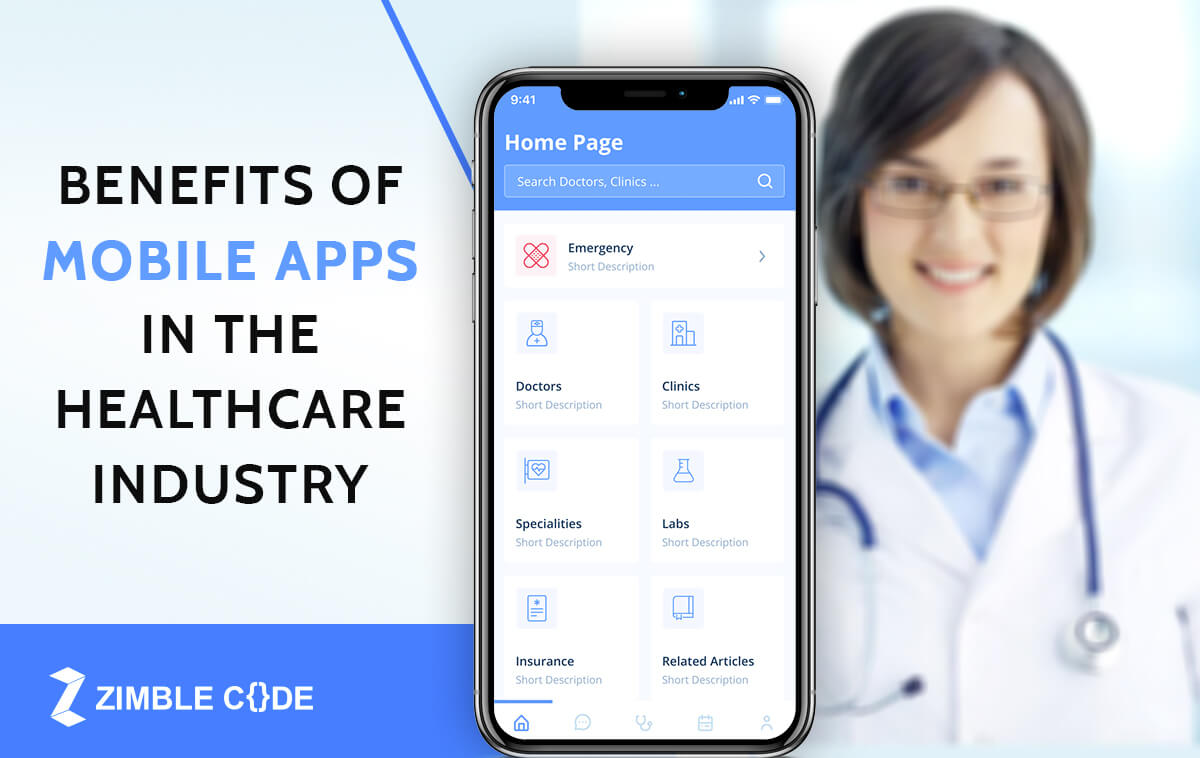Best Practices for Establishing a Mobile App for Clinics That Meets Patient Requirements
The Future of Health Care: Why Clinics Required a Mobile App Today
As the health care landscape continues to progress, clinics deal with placing pressure to adapt to patient expectations for better comfort and access. The assimilation of mobile applications can offer as a crucial technique for boosting person interaction and enhancing procedures.
Altering Client Assumptions
As the landscape of healthcare develops, patient assumptions are going through a considerable change. Today's clients are significantly seeking convenience, availability, and customized care.
In addition, people are coming to be more educated and encouraged, usually looking into therapies and conditions on-line before assessments. This increased understanding is paired with a need for openness in medical care processes, including cost estimates and therapy alternatives. Consequently, providers are obliged to adapt by adopting electronic devices that enhance the client experience.
The expectation for effective and prompt communication has never been greater, with numerous individuals considering responsiveness an important element of top quality care. mobile app for clinics. In this evolving landscape, healthcare companies should identify these altering expectations and take advantage of mobile applications to foster a much more patient-centric strategy, making sure that they not just fulfill but surpass the standards set by today's enlightened customers
Enhancing Individual Interaction

Mobile applications assist in communication in between clients and doctor, allowing real-time appointment scheduling, pointers for medicine adherence, and direct messaging features. These functionalities not only improve comfort but additionally construct a sense of liability amongst clients. Mobile apps can provide instructional material tailored to private demands, aiding individuals better comprehend their problems and treatment choices.
The combination of gamification components within health care apps can likewise motivate people to take part in healthy actions, enhancing positive way of living modifications. By tracking development and rewarding achievements, patients are extra likely to remain dedicated to their health goals. Inevitably, boosting person interaction via mobile applications brings about enhanced wellness outcomes, better person fulfillment, and an extra collective health care experience. Clinics that prioritize this element will likely see a considerable influence on the high quality of treatment supplied.
Streamlining Facility Workflow
Enhancing center operations is necessary for improving operations efficiency and optimizing patient treatment. The execution of mobile applications can significantly decrease administrative concerns, permitting healthcare companies to concentrate mobile app for clinics a lot more on person communications. By automating visit organizing, individual check-ins, and invoicing procedures, clinics can decrease wait times and boost overall functional efficiency.
Mobile applications likewise facilitate real-time accessibility to client records, enabling healthcare experts to make enlightened decisions rapidly. This immediacy not only boosts the quality of care yet also reduces the chance of errors connected with lost or outdated details. Moreover, leveraging mobile technology sustains an extra orderly strategy to managing person follow-ups and therapy plans, making sure that no important steps are forgotten.
This allows for prompt replenishment and aids avoid disruptions in individual care due to stock lacks. By incorporating these performances into their day-to-day operations, centers can create a much more cohesive and effective atmosphere, inevitably leading to improved client results and satisfaction.
Improving Interaction Networks
Reliable communication is regularly pointed out as a cornerstone of high quality health care distribution. In today's fast-paced medical atmosphere, mobile applications can dramatically improve interaction networks in between clinics, individuals, and health care companies. By incorporating mobile applications right into their procedures, facilities directory can facilitate real-time communications, making certain that individuals receive timely info regarding their appointments, examination outcomes, and treatment strategies.
Mobile apps likewise equip people to communicate directly with their medical care teams through safe and secure messaging attributes. This direct line of interaction fosters a sense of interaction and permits for prompt information of concerns, which can bring about far better adherence to treatment procedures. Furthermore, push alerts can remind patients of upcoming visits or medication timetables, minimizing no-show rates and boosting overall health results.

Staying Affordable in Health Care
In a quickly progressing medical care landscape, organizations have to prioritize technology and flexibility to maintain a competitive side. The assimilation of mobile applications into healthcare services is no more optional; it is vital for facilities intending to improve patient involvement, enhance operations, and enhance overall service distribution.
As individuals significantly rely upon digital platforms for wellness management, clinics that fail to embrace mobile technology threat falling back. A well-designed mobile application can provide attributes such as consultation scheduling, telemedicine consultations, and access to clinical documents, giving clients with benefit and promoting commitment.

Rivals are also buying mobile solutions, so remaining in advance needs constant enhancement and staying educated about technological advancements. Clinics must not only execute mobile applications but likewise engage in normal updates and refinements. Eventually, the effective integration of mobile innovation will distinguish forward-thinking health care organizations and established the criteria for patient-centric care in an electronic globe.
Conclusion
In conclusion, the combination of mobile applications in facilities is imperative to resolve the evolving landscape of individual expectations. Eventually, the strategic implementation of mobile applications represents an essential step toward supplying personalized and available medical care, therefore meeting the demands of today's empowered people.
Inevitably, enhancing person involvement with mobile applications leads to boosted wellness end results, higher person satisfaction, and a much more collaborative medical care experience.Mobile apps also facilitate real-time access to person documents, allowing health care professionals to make informed decisions swiftly. In today's fast-paced medical setting, mobile applications can substantially improve communication channels between centers, clients, and medical care service providers.Mobile applications likewise empower people to communicate straight with their health care groups with protected messaging features. Ultimately, the tactical implementation of mobile apps stands for a vital action toward providing accessible and tailored medical care, consequently satisfying the requirements of today's empowered clients.